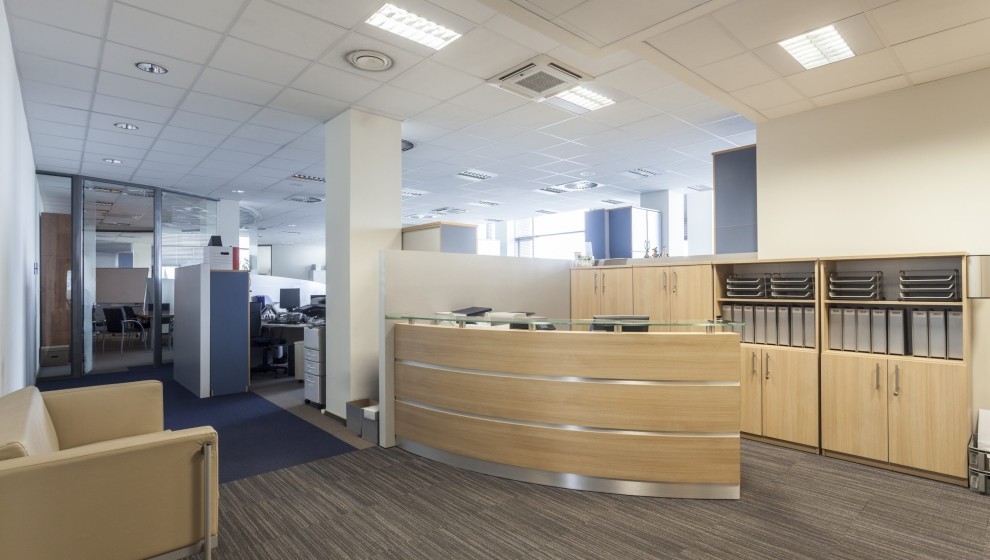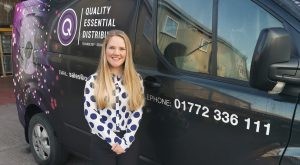
At this stage of the COVID-19 pandemic, many businesses have worked hard to create products that can help you protect your staff, employees and visitors when your business reopens. However, there is a lot of anxiety and confusion for businesses to determine what is going to be effective and how to prioritise what they need to do.
Here is a quick guide outlining some of the key items and how they work to help you create a safer environment for your workers and visitors.
Sanitiser systems are being installed in a variety of environments including schools, offices and public venues to construction and healthcare facilities and form a key part of the implementation of protective measures to reduce the risk of transmission of the coronavirus.
Anti-viral hand sanitiser systems, such as Steriloc, is a contact-free hand sanitisation unit that can stand alone or be linked to a door entry or turnstile system to keep viruses out. Sanitiser systems can be wall mounted or free standing in a corporate branded cabinet or paired with a turnstile to prevent entry to specific areas with no doors.
NB: Healthcare professionals recommend washing hands with soap and water is vital to reduce the risk of spreading the COVID-19 virus, but when soap and water aren't available, sanitiser is an effective alternative.
One of the most popular safety measures many businesses have introduced with employees is checking temperatures. We know a high temperature is only one of the coronavirus symptoms, but it is an early warning sign that will alert you to go for further testing.
Systems for temperature measuring include face recognition terminal or temperature gate with access control and wrist temperature screening.
There are a multiple of verification modes for access control, for example, employees can pass with both a normal temperature and matched face on record, but you can add mask detection as an extra access verification condition.
You can also immediately know who is in the building at any time in case of a building evacuation. Even when the pandemic is over, these devices will still be valuable and continue to be used for easily managing access control, or to record attendance data of employees.
A handheld infrared thermal imager is also a popular option for offices and more mobile locations such as construction sites. It combines a surface temperature measurement and real-time thermal images of people. You can quickly and easily identify an abnormal temperature at a safe social distance.
Touch-free exit buttons enable businesses to implement safe and hygienic door access. They decrease the risk of contracting germs and viruses from hard surfaces such as door handles and exit buttons.
We have seen a high demand throughout the UK for this type of product as businesses prepare for employees returning to office buildings and visiting public venues.
You’ll have seen local shops, banks and most reception areas have clear Pyrex screen 'sneeze guards' installed to protect employees who have regular face-to-face contact with customers. These screens ensure a barrier is placed between employees and customers to help reduce the spread of COVID-19 and to block airborne particles.
Clear sneeze guards are ideal for this purpose where close contact occurs. They are lightweight but tough, laser cut with polished edges, the screens offer high transparency without any blurring of vision. They are two times lighter and thirty times as strong as ordinary glass screens.
Sneeze guards can be installed with freestanding legs, or a tension wire suspension kit and screens can be customised enabling your business to comply with social distancing measure as advised by WHO (World Health Organisation).  Hannah Whittle is operations manager of Quality Essential Distribution, a security solution specialist that distributes a range of products including sneeze guards, handheld infrared thermal imagers, touch-free entry/exit systems, hand sanitiser systems and temperature gates to help businesses create a safe working environment. Based in Bamber Bridge in Preston, the firm has gained a strong and well-respected reputation over the last 21 years in its profession.
Hannah Whittle is operations manager of Quality Essential Distribution, a security solution specialist that distributes a range of products including sneeze guards, handheld infrared thermal imagers, touch-free entry/exit systems, hand sanitiser systems and temperature gates to help businesses create a safe working environment. Based in Bamber Bridge in Preston, the firm has gained a strong and well-respected reputation over the last 21 years in its profession.
In 2019 as QED’s newly appointed operations manager, Hannah Whittle joined Boost’s Growth Mentoring Programme and gained valuable mentoring support from Julie Brotherton, a specialist in leadership, people development and team building.




The website uses cookies.
Some are used for statistical purposes and others are set up by third party services. By clicking 'Accept all & close', you accept the use of cookies. For more information on how we use and manage cookies, please read our Cookie Policy.